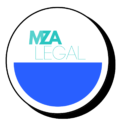
Does BOI Reporting Mean the End of Anonymous LLCs
For many business owners, privacy is a major concern. And rightfully so. Just because you’re running a business, doesn’t mean you want your personal information shared with the public.
For years business owners have been allowed form and register anonymous LLCs to maintain their privacy while doing business. But with the passage of the Corporate Transparency Act, many are worried that they will not be able to keep their personal information private when starting a new business.
And some are wondering…
Does the CTA mean the end of anonymous LLCs?
If you are worried that the reporting requirements under the Corporate Transparency Act (CTA) will make your private info public, you can take a deep breath.
Information shared under the CTA’s reporting requirement will not be made available to the public. The information you provide will only be available to government agencies, certain authorized persons, and financial institutions. Furthermore, such information will not be subject to requests under the Freedom of Information Act.
Let’s take a look at what the CTA is, and how it’s requirements will impact business owners and entrepreneurs.
What is the Corporate Transparency Act?
The Corporate Transparency Act is a federal law passed by Congress in 2021. It’s purpose is to combat the use of anonymous shell companies for illicit activities, such as money laundering and tax evasion.
FinCEN is responsible for creating the rules under the CTA. And in 2022, they issued the a Beneficial Ownership Information (BOI) Reporting Requirements rule. This rule requires certain business entities to submit a BOI report to FinCEN.
What should I know about about the CTA’s BOI reporting requirements?
Who is required to report?
The reporting requirement generally applies to all corporations and LLCs. There are exemptions to this rule for larger companies. For example, companies that are publicly traded are exempt. However, there are no exemptions for small businesses.
What are they required to report?
Basic information about the company will need to be submitted. This includes the company’s name, it’s physical address, the state of formation, and it’s EIN. Companies will also be required to provide information about their beneficial owners. A beneficial owner is an individual who owns at least 25% of the business or who exercises substantial control over the company. Beneficial owners must submit: their full legal name; date of birth; address; and a valid form of ID.
When does the reporting requirement take effect?
The reporting requirement will go into effect on January 1st 2024. However, existing business owners will one year to file the required information. Companies formed after that date, will have to submit information about their company within 30 days of receiving their filed formation documents from their state. And any change in information previously filed must be corrected within 30 days.
What are the consequences for non-compliance?
Companies that fail to comply with the new BOI reporting requirements could face stiff penalties. Potential penalties include a fine of up to $10,000 and up to 2 years imprisonment. However, FinCEN will likely prioritize education over punishment when it comes to compliance.
What does all this mean for small business owners?
In the end, what does the reporting requirement under the Corporate Transparency Act mean for small businesses?
First, it means entrepreneurs will need to stay organized. You’ll have to make sure you’re submitting the right information at the right time. And to do that, you’ll have to stay on top of deadlines, and understand what type of information is required. Furthermore, you’ll have to make sure you’re keeping accurate and complete records in case your business faces any type of scrutiny.
You can also expect account opening and loan application procedures to change. Currently most banks require business owners to submit personal and business information when opening accounts and applying for loans. But exactly what information is required may vary from bank to bank. With the reporting requirements implemented under the CTA, banks will have access to a database with much of this information. This may make it easier for them to get the information they need to start providing services, making the process easier for small business owners.
The BOI Reporting and Anonymous LLCs
BOI reporting does not mean the end for anonymous LLCs. Entrepreneurs will still be able to maintain their privacy from the public. However, entrepreneurs will face additional obligations under the CTA’s reporting requirements. And small businesses will not be exempt.
If you’re a business owner, make sure you’re staying on top of your compliance obligations and keeping complete records. MZA Legal makes legal compliance simple. We can take care of your filing requirements, so you can focus on what you do best. Contact us today to see how we can help you manage the pressures of running a business.
